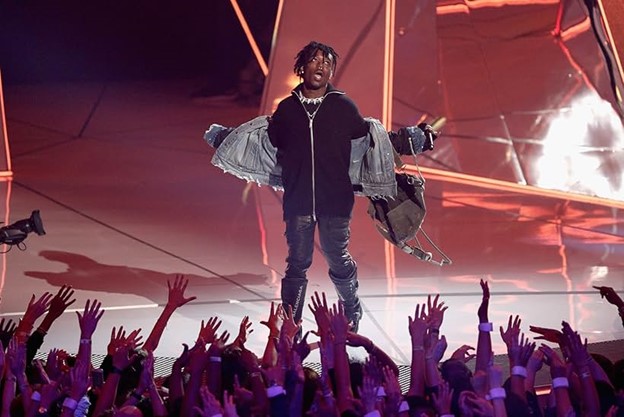
It has been said that “there is no greater therapy than the love of a dog.” The students of the University of Massachusetts got to experience this love last week when the Paws Program visited campus. Over 200 students were eagerly waiting at the doors of the event before they opened at 11:30 a.m., when its six dog-handler teams were immediately swarmed with excited students petting and cooing at the trained service dogs. The Peer Health Educators from the Center for Health Promotion hosted the Paws Program to reduce stress for students during midterm exams. The program visits colleges across Western Massachusetts and has many dog-handler teams that volunteer to staff these types of events.
The reception by UMass students was exceptional and students said that they felt the therapeutic benefits of playing with these furry friends.
“Even if you’re not a dog lover, going over with friends to enjoy the company of an animal … puts a smile on anyone,” junior Nick Dundas said.
Though these dogs were brought to campus for stress relief, the program and its canine representatives offer many other services.
“I just wish they were actual puppies that we were able to hold and play with because I know some universities have that,” senior Kayla Steinhauser said. “However, it was definitely beneficial because animals can brighten anyone’s day and I think we all needed a little bit of that with this cold winter.”
A therapy dog can be raised from a variety of breeds, is trained in a team and exhibits an overall outstanding temperament, including patience and amiability. Out of the approximately 50,000 service dog-handler teams in the United States that work with all sorts of issues, around 200 of these teams are actively registered with Paws Program. These teams work with hospital and psychiatric patients, veterans, children and adults with learning disabilities and behavior issues and in hospice care.
According to Cynthia Hinckley, executive director of the Paws Program, hospice work has been the most beneficial for her and her dogs. In 1992, Hinckly visited a woman in hospice who hadn’t spoken in 20 years. The woman spoke to Hinckly’s therapy dog the first day they visited. In addition, a new dog therapy program has been established to assist children at risk of failing out of school. This program acts as a great incentive for children to attend school and provides a judgment-free zone for the students. So far, the Paws Program is involved with eight local elementary schools and hopes to expand involvement.
Awareness for therapy dog use began in the 1980s and since then, there have been numerous advances in understanding the benefits that therapy dogs can bring. Assisted Animal Therapy (ATT) has been scientifically proven to improve physical and mental health. Contact with these animals can lower blood pressure, improve cardiovascular health and release oxytocin, a natural endorphin with a calming effect.
Those are just the physical gifts people get from petting a therapy dog, but there are more long-term psychological benefits as well. Therapy dogs can lessen depression, provide comfort, encourage communication and socialization, lower anxiety and help children overcome speech and emotional disorders. Therapy dogs have also been used in cases involving post-traumatic stress disorder (PTSD). Veterans who have been deeply scarred by PTSD can find comfort and safety in dog visits, or in some cases, even heal through training a therapy dog on their own.
For all of us who cannot spend too much time away from our furry friends, you will be glad to know Paws Program will be coming back again later in the school year. If you missed the wonderful canines last week, the UMass Health Program and Paws Program will be coming together again for pre-finals stress relief on the last day of April.
Adria Kelly-Sullenger can be reached at [email protected].


















